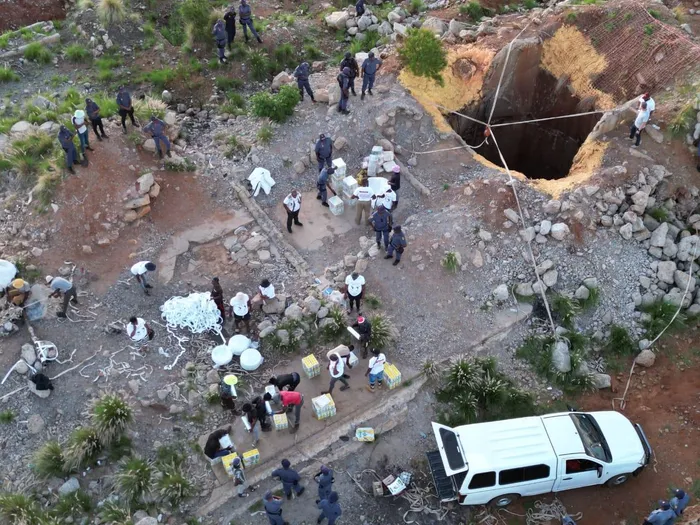Illegal mining is not just a SA problem | Harmony Gold unpacks problems in New Guinea

Illegal mining issues continue to plague not only South Africa, but also Papua New Guinea.
Image: Supplied
Illegal mining isn’t confined to South Africa’s goldfields. Harmony Gold says unauthorised mining also disrupts mining operations in Papua New Guinea, where motives differ but the impact is just as severe.
Harmony Gold’s operational mine in Papua New Guinea is the Hidden Valley open-pit gold and silver mine, while illegal miners there – raskols – are mainly concentrated around the semi-government and community owned Porgera mine.
The Porgera Joint Venture is a major gold mine located in the highlands of Papua New Guinea and is considered one of the world's top gold-producing mines.
It has been operating since 1990 and includes both open-pit and underground operation.
While the situation in Papua New Guinea is different, illegal mining there is equally entrenched.
Harmony noted that “unauthorised access is driven by a number of motives” in the Pacific nation, where development has been uneven since independence in 1975 and “many people still face poverty, unemployment, limited access to services, and social challenges like crime, gender-based violence and inequality”.
Illegal mining is especially rife in Papua New Guinea’s Porgera gold region, where conflict and environmental degradation have long plagued the area.
During the Porgera mine’s suspension between 2020 and 2023, informal mining surged as landowners cut off from benefits turned to the idle site.
Earlier this year, authorities clarified a shoot-to-kill policy for breaches of a peace agreement after a community misunderstanding at the mine.
“Like other resource-rich countries, Papua New Guinea is working to overcome these barriers and move toward becoming a prosperous, middle-income nation,” said Harmony.
Harmony said that, to “protect our mines, employees and communities, we leverage cutting-edge technology and collaborate with key stakeholders, reinforcing our commitment to creating a safe working environment”.
In South Africa, illegal miners – known as Zama Zamas – are part of a highly organised network linked to financial and violent crime.
“These activities disrupt supply chains, endanger employee safety and compromise operational continuity,” said Harmony.
Harmony added that “illegal mining can lead to asset damage, increased security costs and reputational harm while also undermining regulatory compliance efforts”.
The miner said South Africa faces many social challenges that contribute to the problem, including “insufficient service delivery, poverty, inequality, widespread unemployment, illegal mining and high levels of crime”.
These issues, Harmony said, “highlight the urgent need for both private and public sector contributions to improve citizens’ quality of life”.
Illegal artisanal mining activities “lead to environmental degradation, social discord and disruption, and have financial implications for our business,” said Harmony.
The company said it invests heavily in “asset security, internal controls, community engagement and collaboration with law enforcement” to curb the problem.
Harmony invested R748 million in the year to June, up from R678 million in 2024, which it said, “reduced illegal mining by 117% this year at operational shafts in South Africa”.
Since 2008, it has sealed or demolished 48 shafts in South Africa to make sites less accessible to Zama Zamas.
The company said Operation Vala Umgodi, a police-led initiative, resulted in 2 603 arrests, while 1 406 illegal miners were apprehended at its Margaret shaft through a joint industry effort.
Harmony added that its security teams receive human rights training “to act responsibly while safeguarding people and assets”.
IOL Business
Get your news on the go. Download the latest IOL App for Android and IOS now.
Related Topics: